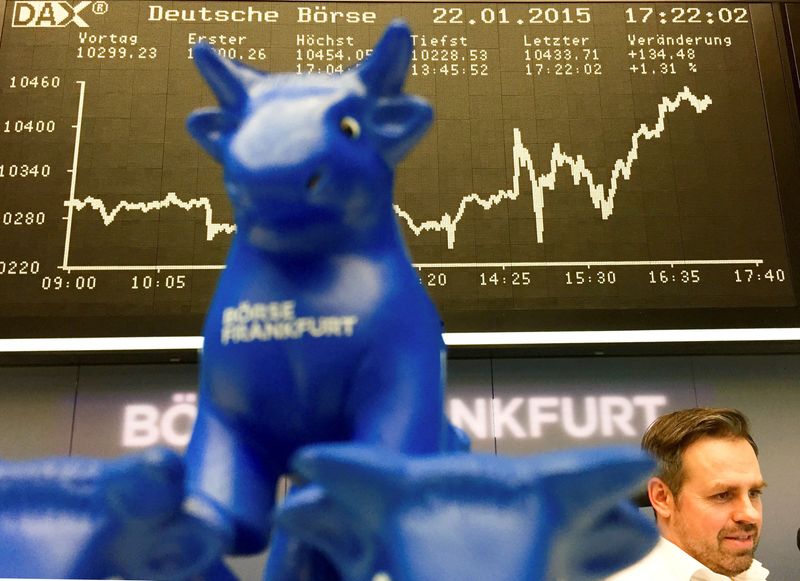Investing.com - European stock markets traded in a mixed fashion Wednesday, with investors digesting a raft of corporate results, including disappointment from heavyweight HSBC.
At 03:05 ET (08:05 GMT), the DAX index in Germany traded 0.1% higher, the CAC 40 in France traded up 0.1%, while the FTSE 100 in the U.K. dropped 0.5%.
HSBC hit by Chinese impairment; Nvidia due later
It’s the corporate sector that is in the spotlight Wednesday, as the quarterly earnings season continued in full flow.
The day’s highlight is set to come from the U.S., with the main beneficiary of the artificial intelligence boom, Nvidia (NASDAQ:NVDA), set to report another impressive quarter.
The chipmaker is widely expected to more than triple quarterly revenue to roughly $20 billion, but even this may not be enough to keep the stock rising given its stratospheric rise over the last 18 months or so on the back of the seemingly unquenchable demand of all things AI.
Back in Europe, HSBC (LON:HSBA), the region’s largest lender, reported a record annual profit of $30.3 billion for 2023, up 78% from a year earlier, and announced a fresh $2 billion share buyback.
Still, its stock fell 5% as this result was marred by a $3 billion impairment on the bank's stake in China's Bank of Communications.
Rio Tinto (NYSE:RIO) stock fell 1.2% after the miner’s underlying profit fell about 12% to $11.8 billion for 2023 as softer iron ore prices and demand weighed on its topline, and it warned that it still faced rising costs.
Glencore (OTC:GLNCY) stock fell 3.9% after the commodities trader and miner said that lower commodity prices had halved its earnings last year, prompting it to cut its dividend.
BAE Systems (LON:BAES) stock reported better-than-expected full-year profits and the British defense contractor said sales would likely grow further this year given increases in military spending by governments.
Eurozone consumer confidence due
The economic calendar is pretty empty in Europe Wednesday, with the eurozone consumer confidence flash estimate for February the only major report expected.
This is expected to show only a slight improvement from January’s -16.1 level as regional sentiment remains weak as the eurozone narrowly avoided a recession at the end of last year.
Investors are looking for clues of when the European Central Bank will start its rate-cutting cycle in an attempt to support the region’s meager growth.
They were given a boost on Tuesday with the news that negotiated wages growth slowed in the fourth quarter, given the importance the ECB has placed on wage growth as its attempts to contain inflation.
Crude stabilizes after U.S. vetoes UN resolution
Oil prices traded in a muted fashion Wednesday, stabilizing after losing ground lost in the previous session as attacks on shipping in the Red Sea (NYSE:SE) meant tensions in the region remained fraught.
By 03:05 ET, the U.S. crude futures traded 0.1% lower at $76.95 a barrel, while the Brent contract dropped 0.1% to $82.25 a barrel.
Both benchmark contracts fell around 1.5% from near three-week highs on Tuesday.
Prices remained underpinned by persistent concerns over supply disruptions in the Middle East, as drone and missile strikes by Yemen's Iran-aligned Houthis have hit at least four vessels proceeding through the Red Sea since Friday.
The United States vetoed a draft United Nations Security Council resolution on the Israel-Hamas war late Tuesday, blocking a demand for an immediate humanitarian ceasefire.
Additionally, gold futures traded largely flat at $2,039.50/oz, while EUR/USD traded 0.1% higher at 1.0810.
